A feathery, fast-growing annual, dill is a great herb to add to the vegetable garden. Despite its distinct flavor, dill can be used to season all kinds of dishes, from salmon to classic pickles (and my favorite, dilly beans!). It also provides significant advantages in the garden, deterring pests with its pungent aroma and attracting beneficial insects like hoverflies and ladybugs with its large umbels of tiny yellow flowers.
Most of the best companion plants for dill actually benefit more from the herb than it does from them. But dill does grow better alongside some plants than others, and I’ve compiled a list of the best ones below, as well as some that should be planted elsewhere in the garden.
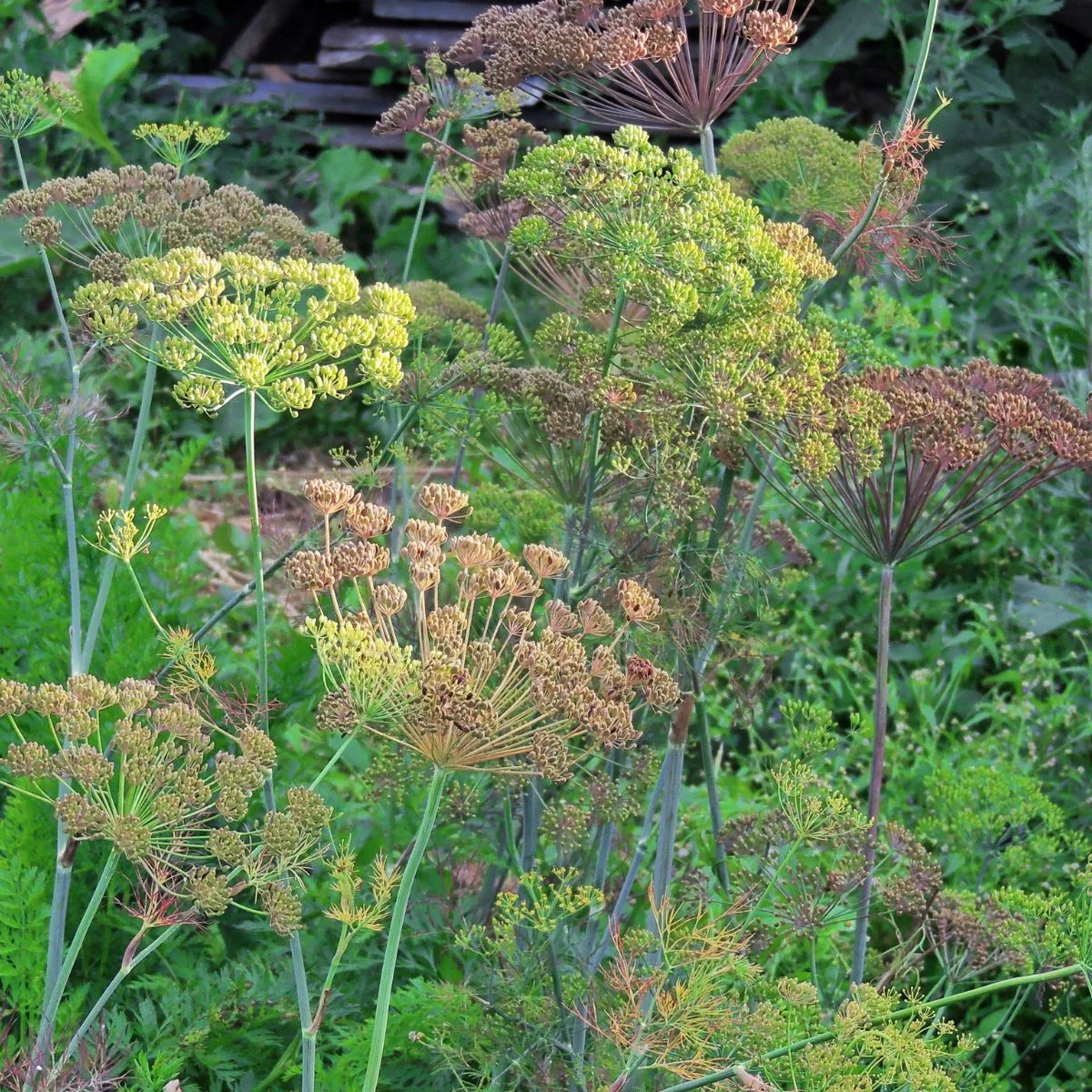
Best Companion Plants for Dill
1. Asparagus
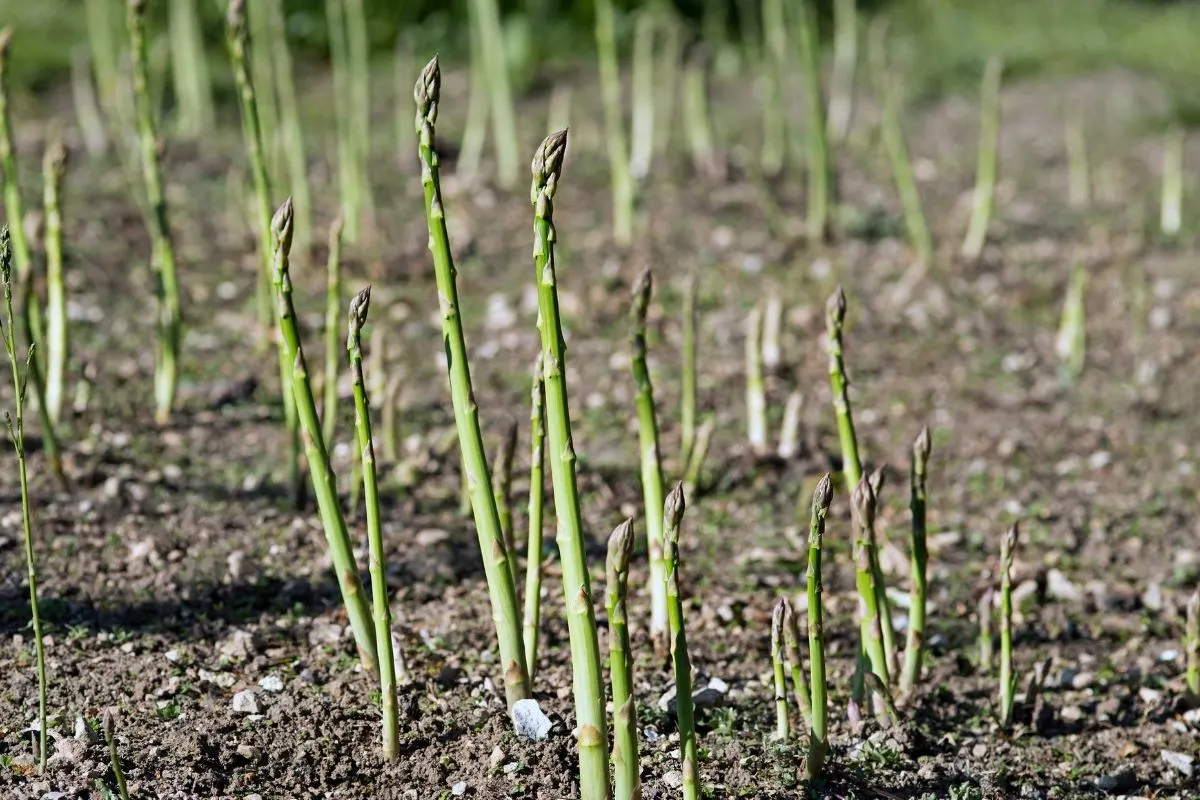
Because dill has shallow roots, you can plant it right in the asparagus patch without worrying about competition with the deep-rooted perennials, or you can choose to grow it around the perimeter. Dill repels some pests, like spider mites, directly. It also attracts beneficial insects like ladybugs and lacewings, which feed on tiny but destructive aphids.
When considering plant spacing, keep in mind that asparagus develops large, feathery branches that take up significantly more space than its tidy spring spears. Learn more about growing asparagus.
2. Basil
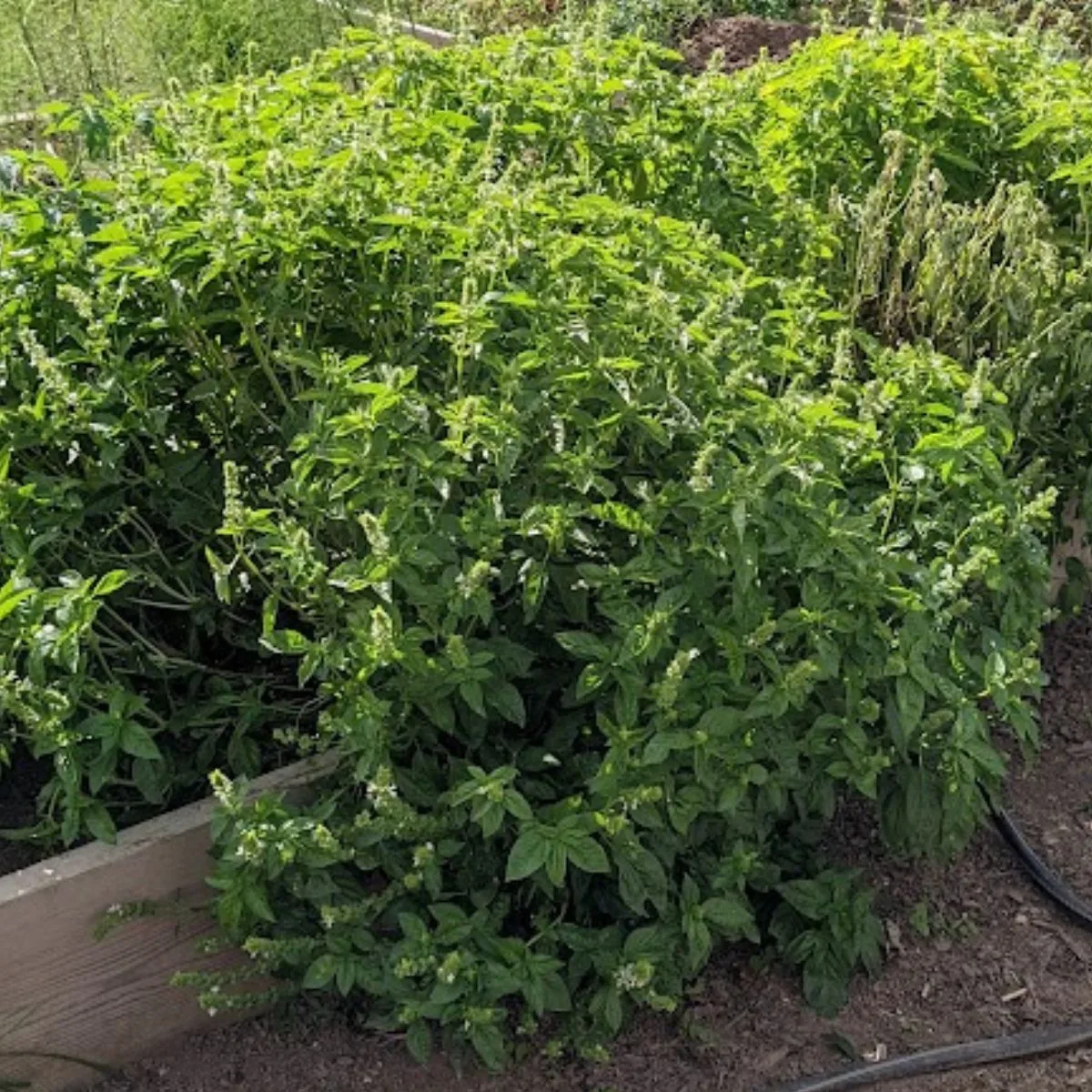
Also an easy-to-grow annual herb, basil pairs well with dill in the garden. Both of these plants appreciate moist, moderately rich soil, cooler temperatures, and plenty of sunlight.
Basil and dill are actually a great duo for container gardening with herbs, too! Plant them together in a large pot with chives for a miniature herb garden that is practical as well as visually pleasing.
Here are some tips for growing basil.
3. Cabbage
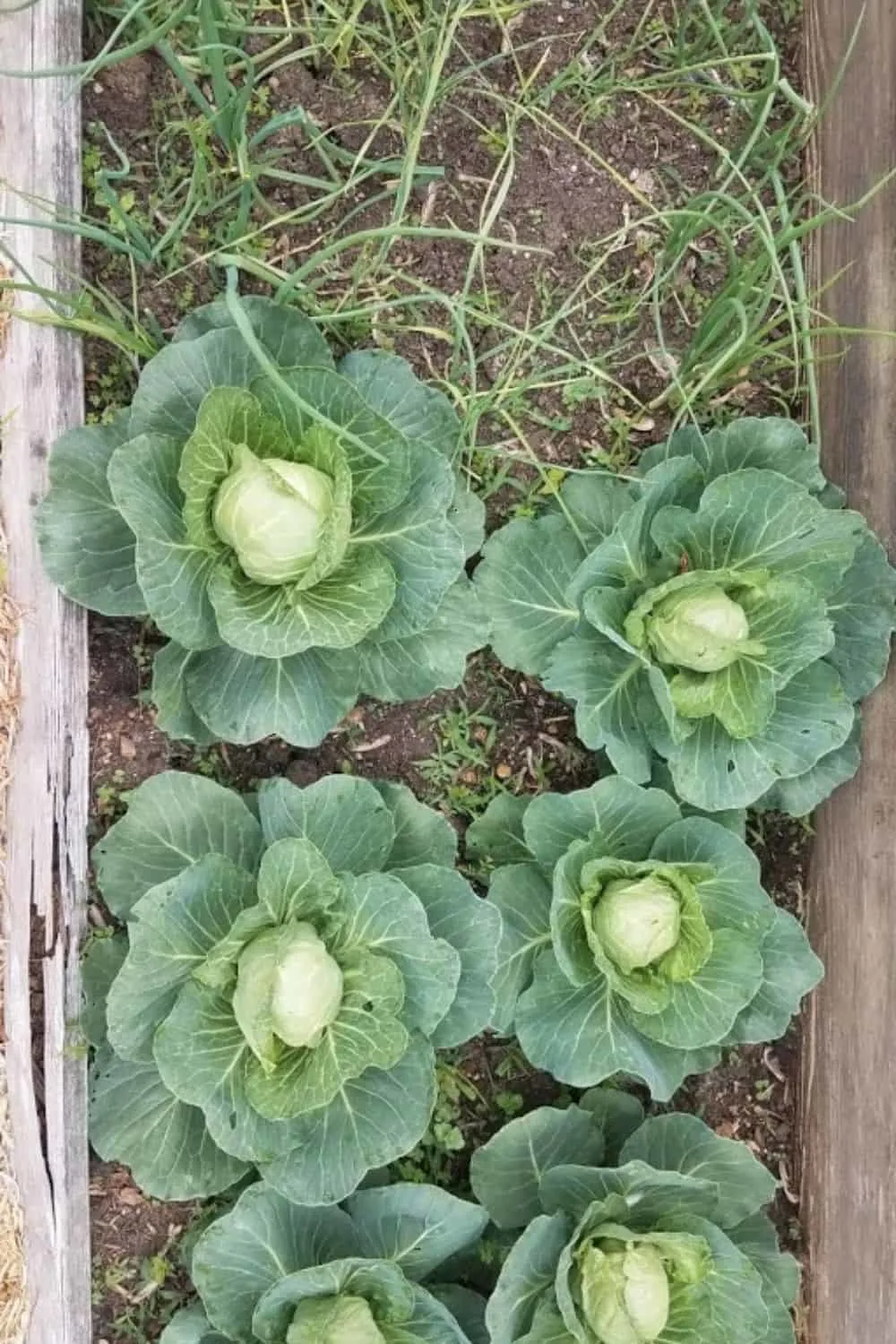
I’m cheating a bit here and lumping the whole brassica family together with cabbage. Its cousins include, of course, broccoli, cauliflower, kale, Brussels sprouts, Swiss chard, and kohlrabi, and they all like dill.
Cabbage and other brassicas benefit enormously from dill’s pest-deterring capabilities. Dill repels some of the worst brassica pests, such as the cabbage looper, cabbage moth, and cabbage worm.
4. Chervil
First off, what on earth is chervil? Often called “gourmet parsley,” this annual herb has a mild flavor reminiscent of licorice and parsley and is used frequently in French cooking. It can be difficult to find in U.S. grocery stores, so if you like it, you should grow some in your garden — alongside dill.
Dill and chervil make great companions because they offer similar benefits to surrounding plants, such as attracting beneficial parasitic wasps. This means that, planted together, they can double the effect! Chervil also shares growing requirements with dill.
5. Cucumbers
What goes better with cucumbers than dill? Grow them together so you can easily harvest the main ingredients for a fresh cucumber salad or classic, homemade dill pickles.
If, like me, you struggle to grow cucumbers because hordes of nasty little striped cucumber beetles beat you to the harvest, this duo makes sense in the garden as well as in the kitchen. Dill attracts beneficial insects that prey on cucumber beetles, thus providing you with free all-natural pest control.
6. Onions
Most of the companion plants listed so far benefit from growing near dill, but the relationship between onions and dill is mutual. While dill repels many pests, it has a few of its own. Onions complement this herb by repelling additional pests, some of which munch on dill.
Of course, dill, in turn, helps reduce the populations of some onion pests, like aphids and Japanese beetles. Some gardeners claim that dill also improves the flavor of onions.
Worst Companion Plants for Dill
Dill grows happily with many vegetables, herbs, and flowers. However, it isn’t on the friendliest terms with all plants, and the following three should be kept at a distance to ensure they, and your dill, all grow strong and healthy.
1. Carrots
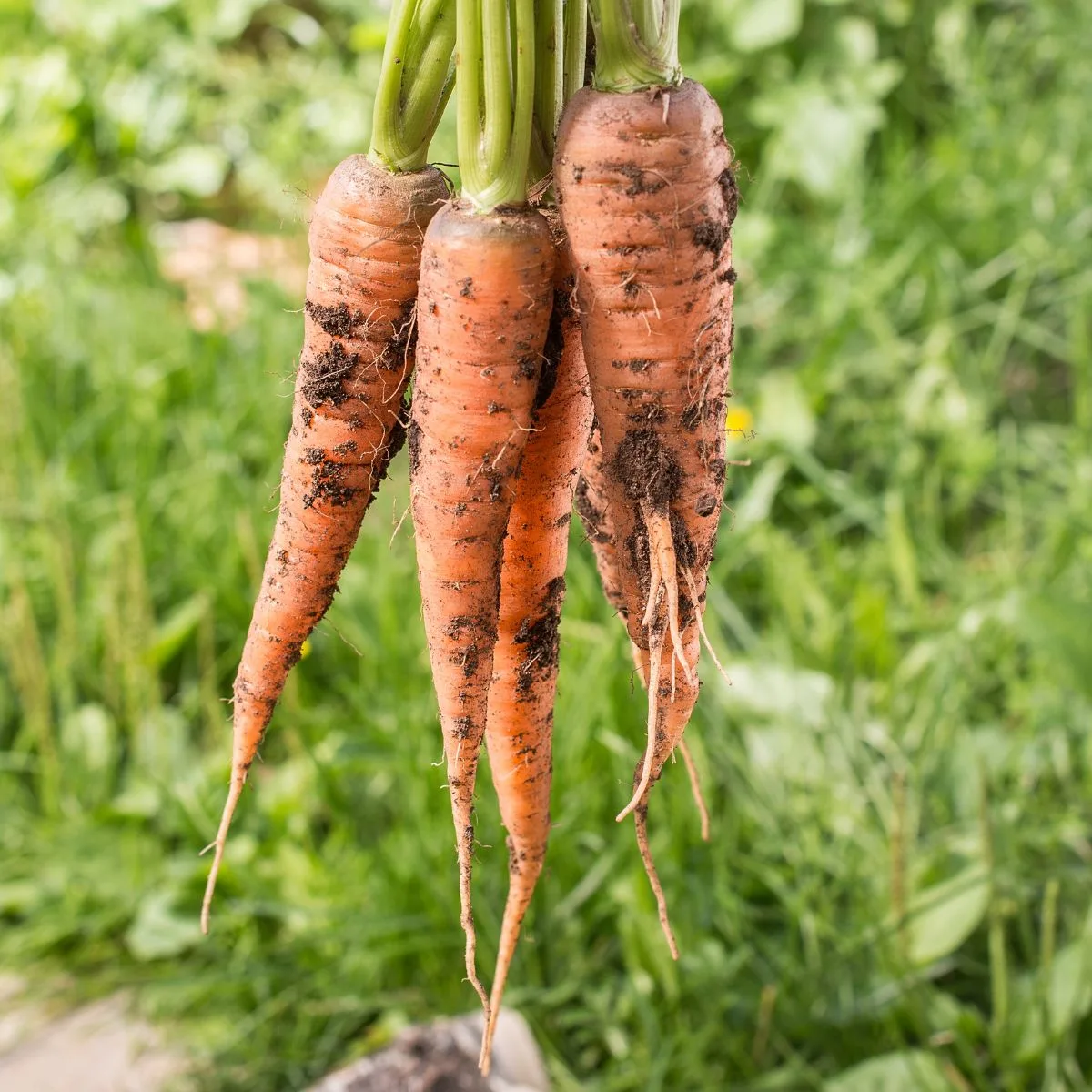
Dill and carrots belong to the same family, which means they can attract the same diseases and pests, like the carrot fly. Planting them in different areas of the garden helps prevent the spread of these problems. Dill can also stunt the growth of carrots, and these cousins can cross-pollinate, resulting in hybrid plants with unpleasant flavors.
Other members of the Umbelliferae family include caraway, fennel, and angelica. These should also be planted separately for the same reasons.
2. Peppers
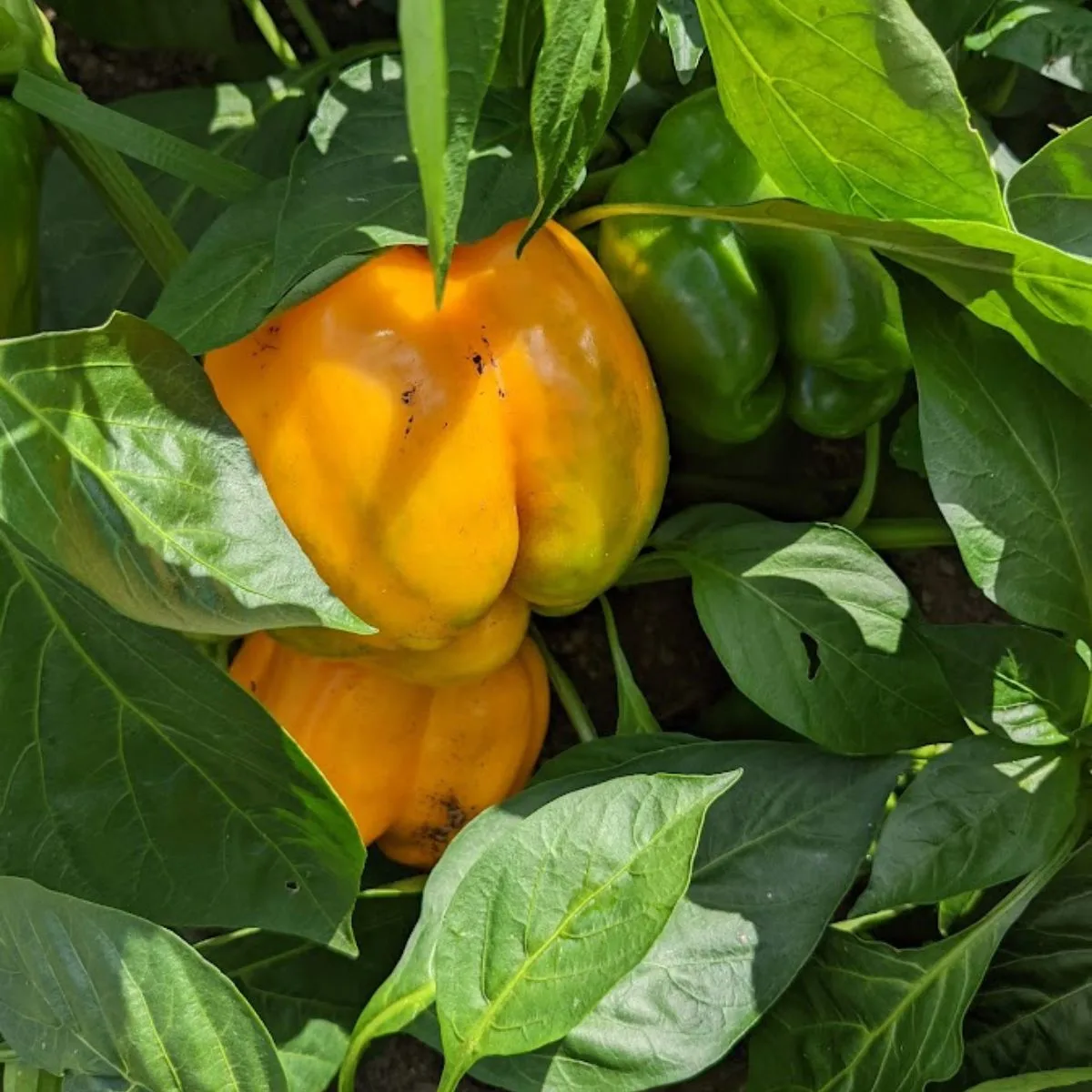
All types of peppers, as well as other nightshades, like eggplants, dislike growing next to dill. While dill repels many common garden pests, it can stunt the growth of peppers and other members of the nightshade family.
So if you were hoping to include some hot peppers in your pickle garden to add a spicy kick to your pickles, you may want to put them in the next bed over.
3. Tomatoes
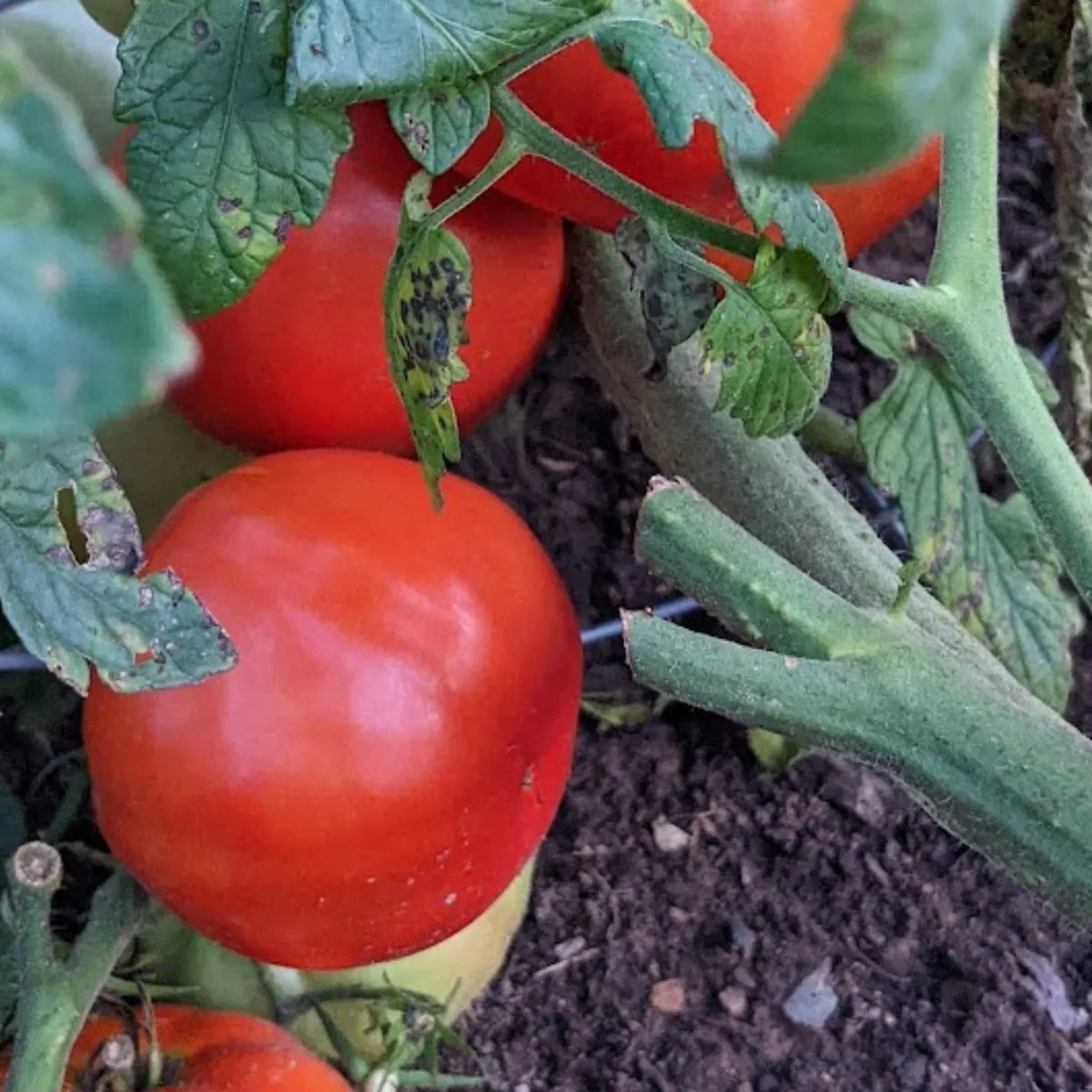
Some lists include tomatoes among the good companion plants for dill, despite the fact that they belong to the nightshade family. The reason for this is a bit complicated. Before it flowers, dill can actually help improve tomato plants’ health, and among the beneficial insects it attracts are predators of tomato hornworms.
But once it fully matures, dill can impede the growth of tomatoes, just like with other nightshades. If you would like to grow dill with tomatoes for the benefits it provides, make sure to keep a close watch and pull the dill out as soon as it shows signs of flowering. We had to pull pout our dill last summer for this exact reason (see my husband here preparing the dill we pulled for drying).
When planning your vegetable or herb garden, make sure to include dill for its wonderful qualities of deterring insect pests and attracting beneficial predators and pollinators. It even grows well in a container! Plus, dill adds excellent flavor to many dishes in the kitchen.
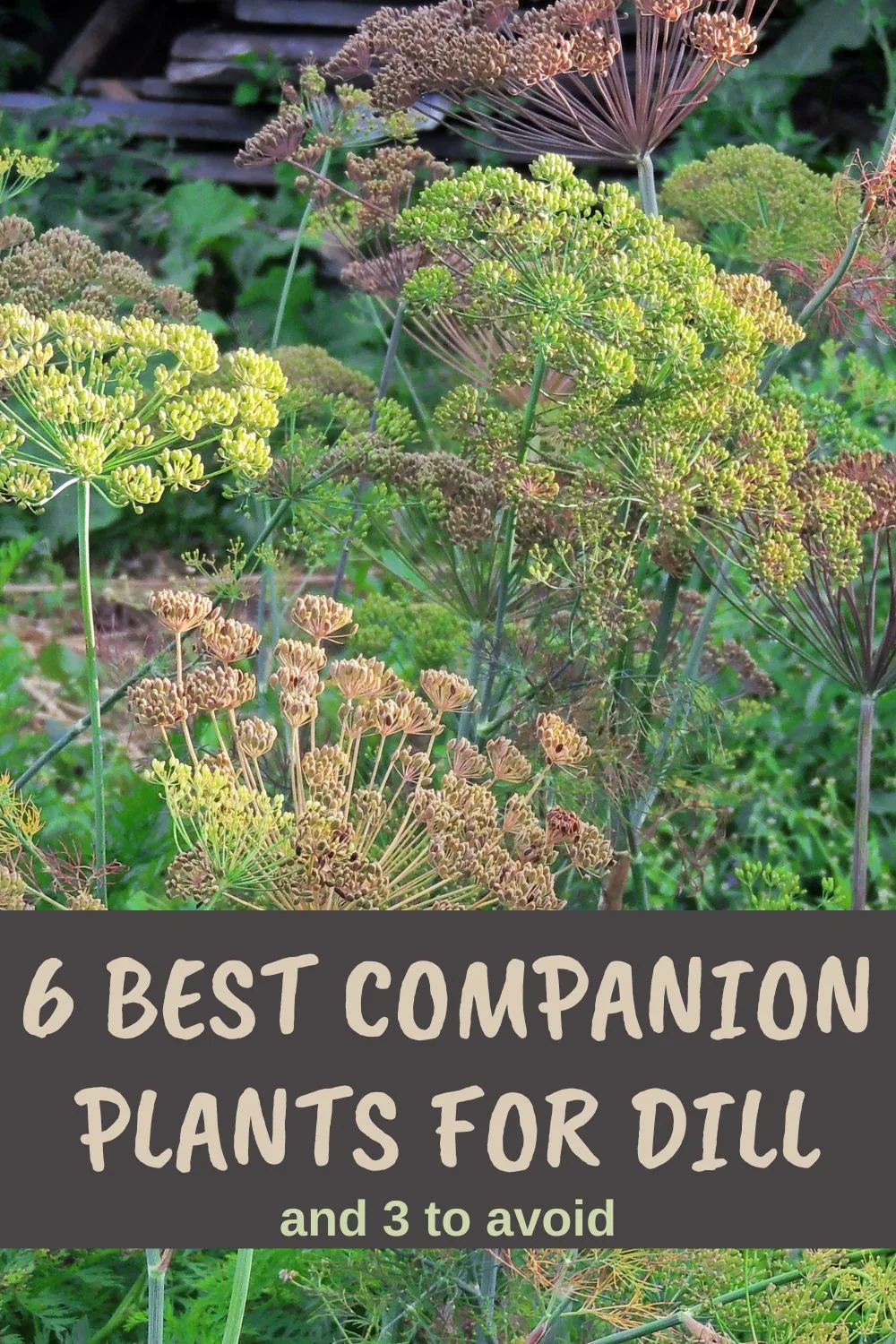
Serena Manickam is a freelance editor and writer and sustainable market gardener in rural Virginia. She holds a BA in environmental science and runs Fairydiddle Farm, a small market garden in which she grows no-spray produce and herbs to sell at a local farmer’s market.





How To Harvest Dill Without Killing The Plant: Tips & Tricks
Sunday 2nd of April 2023
[…] more about growing dill, including what to plant with dill for a better […]
Companion Planting Guide (Including 7 Benefits Of Polyculture)
Sunday 30th of October 2022
[…] Companion plants for dill […]